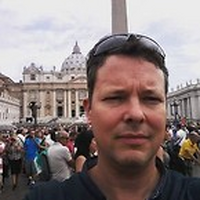
Hendro Munsterman
-
Noch keine BeiträgeHier wird noch geschrieben ... bitte schaue bald nochmal vorbei

Hendro Munsterman
Auftraggeber
international.la-croix.com , lavie.fr , nd.nl , nieuwwij.nl , volzin.nu
Weitere Profile
Fehler!
Leider konnte der Artikel nicht gefunden werden.
We can't find the internet
Attempting to reconnect
Something went wrong!
Hang in there while we get back on track









